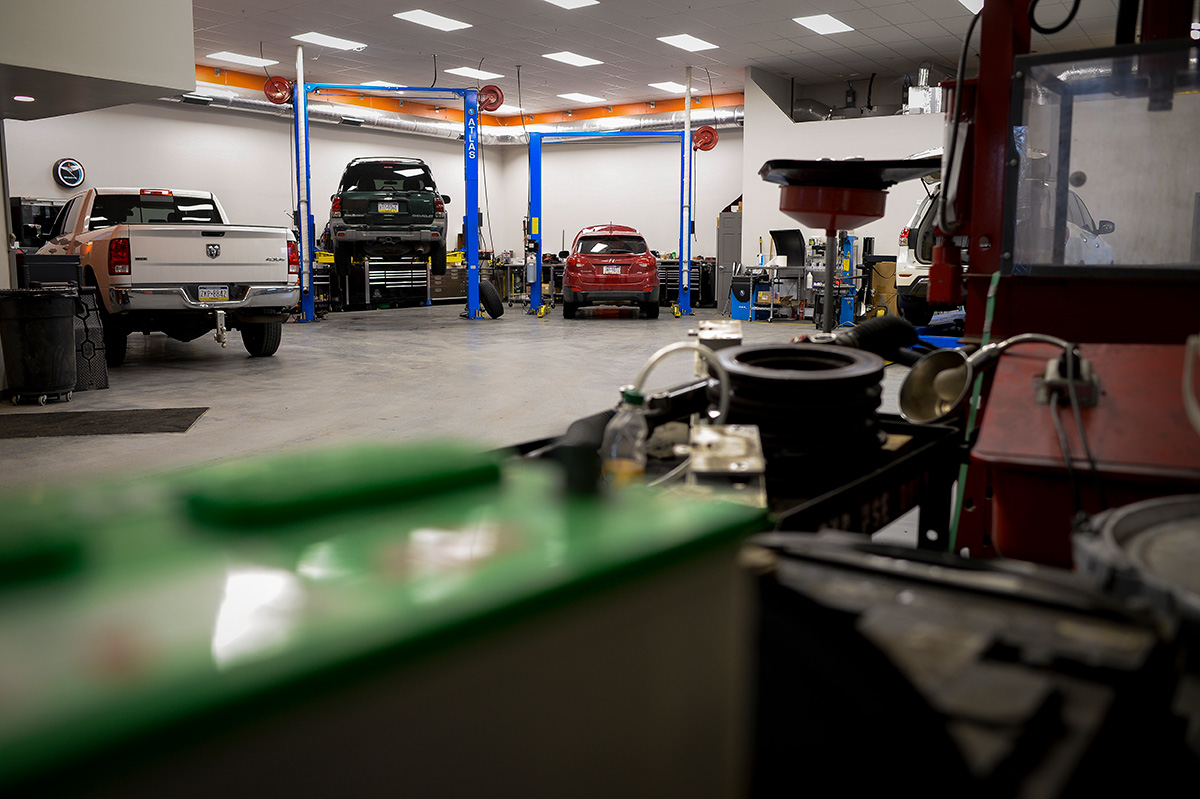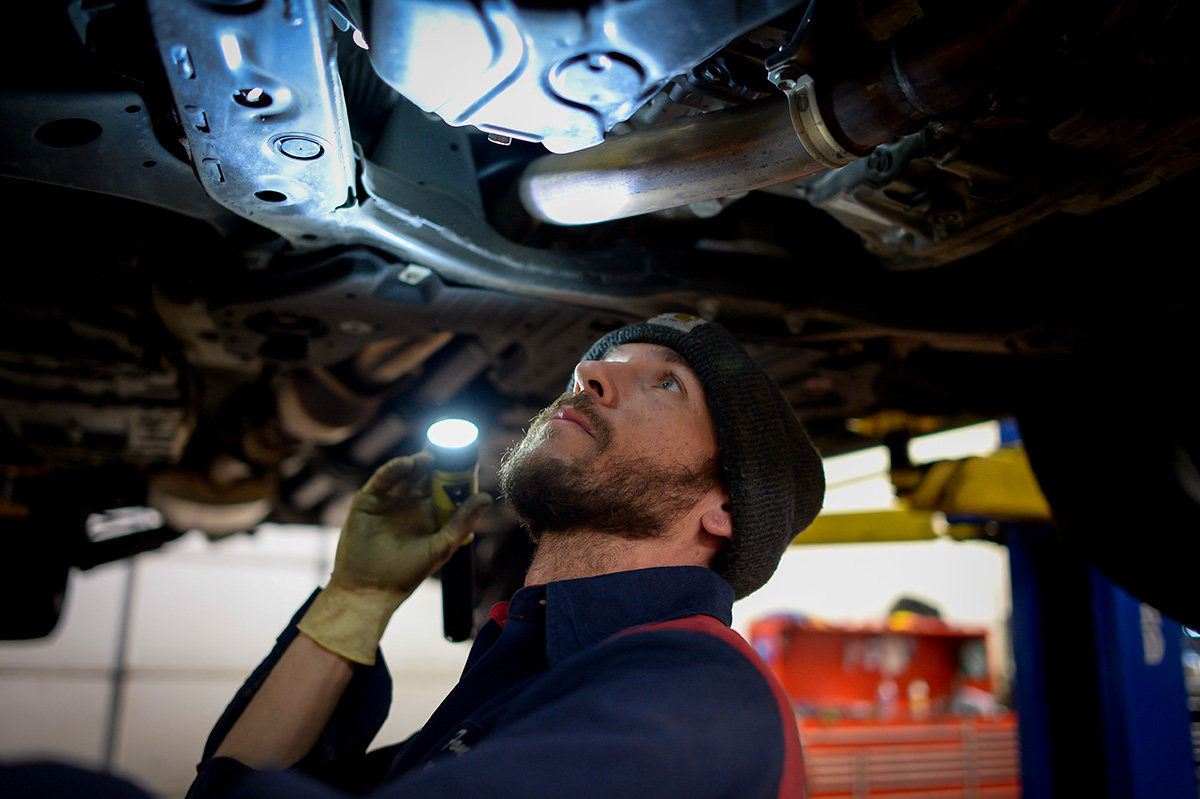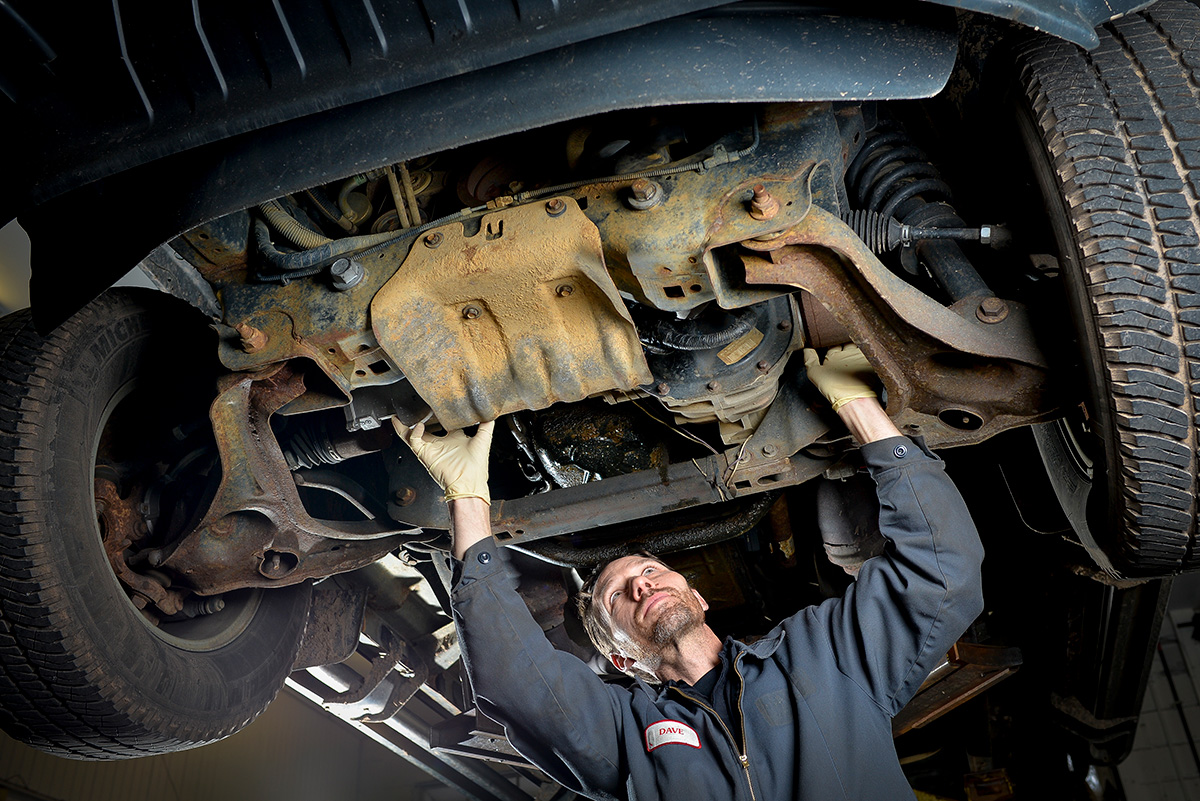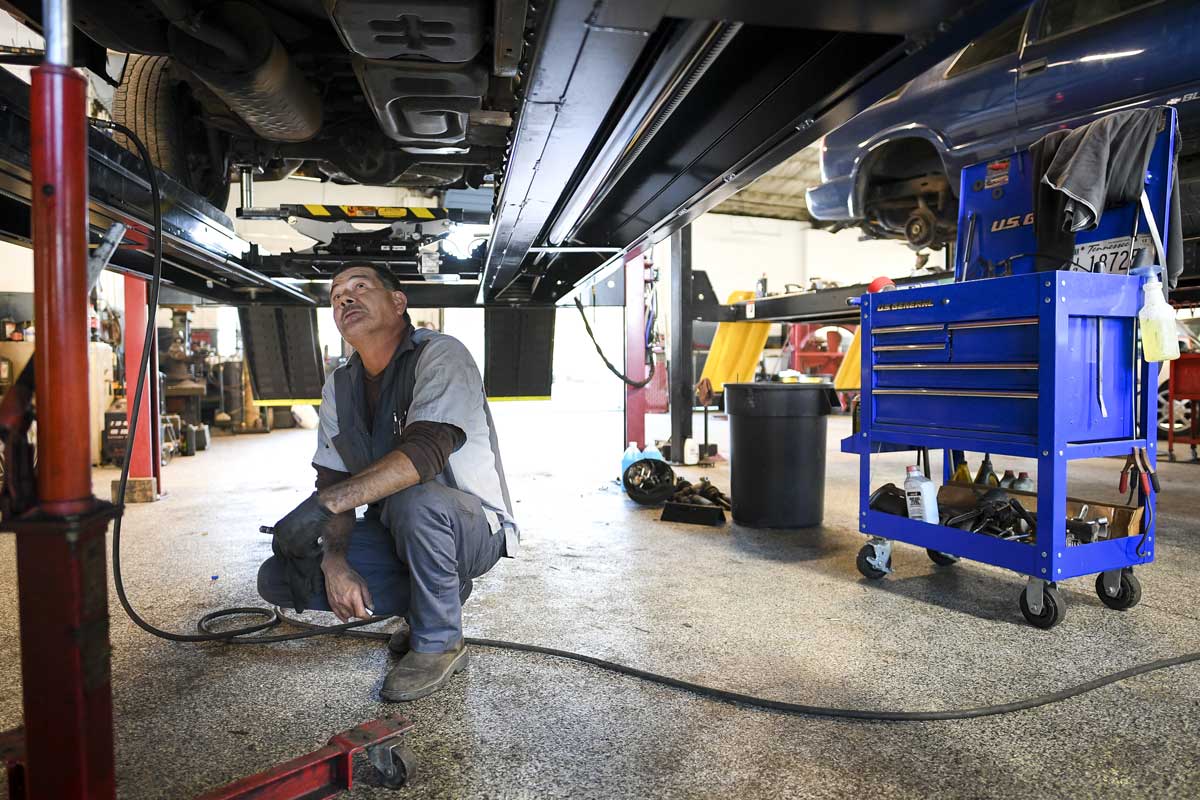“Drive it ‘til the wheels fall off” isn’t the safest decision. So when does it end?

I began my wrench-turning career back in the late ‘70s when cars still used carbureted engines with mechanical points ignition systems. I’ve witnessed firsthand the evolution of what once were primarily mechanical systems controlling major engine and vehicle functions to systems now run by computers, based on information received from hundreds of electronic sensors and carried out by dozens more electronic actuators.
And as the complexity of the vehicles grew, so did the complexity of their diagnosis and repair.

In 1990, the Clean Air Act amendments required all vehicles built after 1994 to include on-board computer systems to monitor vehicle emissions. The bill also required automakers to provide independent repairers the same emissions service information as provided to franchised new car dealers. California further passed legislation requiring that all emissions-related service information and tools be made available to independent shops. Unlike the Clean Air Act, the California bill also required the car companies to maintain websites that contained all their service information, which was also accessible on a subscription basis to repair shops and car owners.
The battle lines over who truly owned the data and software operating these vehicles were starting to be drawn. Access to other vehicle systems, those not related directly to emissions certification, were held as proprietary and not made available to the aftermarket. Helping a consumer with a power window issue, or infotainment concern, or any other system fault not tied to emissions, was a challenge and sometimes we had no choice but to refer the customer to the local dealer for service and repair.
And this is where the battle lines began to firm up. It was and is the opinion of the automotive aftermarket that consumers should have the right to decide who they want to take their vehicle to when the need arises. We, on the independent side, of course can’t do the job correctly if we don’t have the same level of access to service information and tooling that the dealer technicians do.
While this is a national issue, the first bill to address the “right to repair” (R2R) in the automotive sector was passed at the state level in Massachusetts in 2012. This bill required automobile manufacturers to sell the same service materials and diagnostics provided exclusively to their dealerships directly to consumers or to independent mechanics. Almost immediately, the OEs filed suit to address their concerns over the legislation and, in my humble opinion, were scared to death that they would be facing the potential of having to meet a wide range of variations on a theme as other states followed Massachusetts’s example.
To keep that from happening, major automobile trade organizations signed a Memorandum of Understanding in January 2014 with the OEMs, using the Massachusetts law as the basis of their agreement for all 50 states starting in the 2018 automotive year. Essentially, it was a document saying the OEs would play nice if the other states didn’t take off in their own directions.
But (and here is where you need to pay attention) the law itself has no legal bearing in any other state other than Massachusetts. And the OEs seem to be backpedaling on their original gentlemen’s agreement.
One example that comes readily to mind is the secure gateway module that is on most vehicles manufactured by Stellantis. Unless you’ve registered for an account and paid a fee, your scan tool will not perform any task requesting a module perform an action. You can’t clear codes. You can’t use bidirectional controls. You can’t code or reprogram anything on the vehicle—even on emissions systems.
Other manufacturers also use secure gateway modules and access through them varies. But the OEs don’t need a special module to lock you out. Mercedes is well known for refusing access or parts to independent shops in the name of vehicle security, so unless you have the appropriate credentials (through the National Automotive Service Task Force) and a wallet full of cash, you won’t get very far there either.

Photo: Mike Apice.
Of course, this has only restoked the fires on both sides of the R2R debate. But thanks to the efforts of some U.S. Representatives, the Right to Equitable and Professional Auto Industry Repair (REPAIR) Act was first introduced in 2022. Currently leading the charge are U.S. Reps. Neal Dunn, R-Fla., Brendan Boyle, D-Pa., Warren Davidson, R-Ohio, and Marie Gluesenkamp Perez, D-Wash. At the time of writing, 38 additional representatives have signed on in support.
The legislation proposed is federal and would apply to all 50 states. It will ensure the preservation of consumer choice, a fair marketplace and the continued safe operation of the nation’s 292 million registered passenger and commercial motor vehicles, 70 percent of which are maintained by independent repair facilities, according to the Auto Care Association.
The REPAIR Act seeks to accomplish this by:
Without these protections, it will become increasingly easy for the OEs to limit what resources they share with the independent aftermarket—you! That translates to a tougher and even more competitive environment in which doing business is going to cost you more. Shop owners, are you paying attention?
“When it comes to repairing their automobiles, consumers deserve options,” said Dunn said Congressman Dunn in a February 10, 2023 press release. Representative Dunn is a member of the House Energy and Commerce Committee, where the bill has been referred. The committee has responsibility for consumer protection matters.
“The REPAIR Act would give owners, including the rural communities in my district, secure access to critical data so the service center of their choosing can replace parts and repair their vehicles. I am proud to support competition in the vehicle repair industry and this important legislation.
“Working families in rural America can’t afford to take a day off to drive their car to the dealership for a costly repair. The REPAIR Act is a bipartisan solution to improve vehicle data access laws to give working families more choices for repair when their car breaks down,” said Gluesenkamp Perez in the same press release. “I appreciate Reps. Dunn, Boyle and Davidson for their leadership on this issue, and look forward to working in a bipartisan fashion to improve repair laws for families who work for a living.” (Citation, Date)
It is also critical to note that the REPAIR Act is the only bill that addresses vehicle maintenance and repair restrictions, including heavy-duty vehicles the U.S. economy depends on for freight transport. Currently, Class 8 vehicles and those used offroad for agriculture and mining operations are not included in any formal agreements (though the is making progress in this area, with an agreement recently reached with John Deere).
“Great!” you may say to yourself. “Problem solved! Let’s get this bill passed!”
Not so fast, my friends. Did you honestly think the OEs would just roll over while this made its way through Congress?

Photo: Mike Apice.
Recently, The Alliance for Automotive Innovation, or AAI, (read “the OEs”), signed an agreement with the Automotive Service Association (ASA) and Society of Collision Repair Specialists (SCRS). The ASA represents automotive mechanical and collision repair facilities responsible for most post-warranty repair services. Meanwhile, the SCRS speaks for more than 6,000 collision repair businesses. I encourage you to read it in its entirety.
Here are the highlights of the agreement:
Sounds good, doesn’t it? Once again, we can hammer out an agreement like grown-ups so everybody’s happy. And without the need of government regulation.
Maybe not.
Read over these bullet points again and I think you’ll see why the Auto Care Association and the CAR Coalition both objected to this right to repair pact the same day it was announced.
Their position states, in part, that the pact is meant to affirm a 2014 national Memorandum of Understanding (MOU) on automotive right to repair, which stated quite clearly that “independent repair facilities shall have access to the same diagnostic and repair information that auto manufacturers make available to authorized dealer networks.”
Remember what started happening to that?

Photo: Mike Apice.
The Auto Care Association, an original signatory to the 2014 MOU, said it was not consulted about, was not a party to and does not support the new pact. Auto Care Association said ASA and SCRS, who did not sign or support the 2014 MOU, represent a small fraction of the independent repair market and do not speak for the automotive aftermarket.
“The agreement between the AAI, ASA and SCRS is a thinly veiled response by the automotive OEMs to HR 906: the REPAIR Act,” the Auto Care Association said. “While the agreement purports to be relevant, all it does is affirm the 2014 MOU rather than implement a meaningful solution to preserve the entire automotive aftermarket and the competition and consumer choice that it creates.”
The Auto Care Association said the agreement is not only designed to create confusion, but also has numerous flaws:
“While it is welcome news that the auto manufacturing industry acknowledges that ‘consumers deserve access to safe and proper repairs throughout a vehicle’s lifecycle,’ today’s letter…is nothing more than lip service and regurgitated platitudes,” said CAR Coalition Executive Director Justin Rzepka. “This pact masquerades as pro-consumer but in reality does nothing to expand consumer choices and give a vehicle owner access to repair data.

Photo: Mike Apice.
Now I’m just an old tech and may not be the sharpest pencil in the drawer, but it seems to me that the OEs are pushing hard to see the REPAIR Act stopped in its tracks. If that happens, my friends, it is my opinion that the access to factory service information and tooling you now enjoy (directly or indirectly) will become more and more limited as well as more and more costly, only adding to the challenges you already face when trying to take care of your customers’ cars, let alone compete with the dealer networks.
This is an important topic, one especially relevant to anyone who makes a living in the independent aftermarket. I encourage you to take the time, do the homework, and decide where you fall on the R2R debate.
And then let your U.S. Representatives and Senators know you support the passage of the REPAIR Act.
With 84% approval, it’s the latest electoral show of support for providing owners and independent garages with more ability to repair motor vehicles.
75,000 state residents agree that independent repair shops should have ready access to real-time vehicle data.
Co-founder of the famous car show writes Washington Post opinion piece calling for Congress to act.
The articles and other content contained on this site may contain links to third party websites. By clicking them, you consent to Dorman’s Website Use Agreement.
Participation in this forum is subject to Dorman’s Website Terms & Conditions. Please read our Comment Policy before commenting.